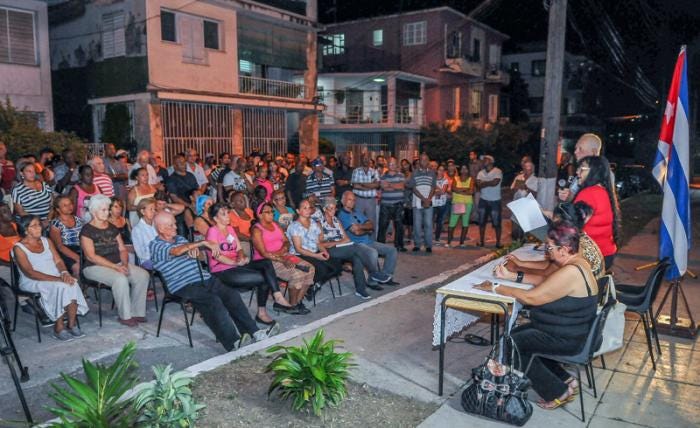Cuban delegates to account to the voters
The Council of State convokes accountability meetings
On June 17, 2024, the Cuban Council of State convoked accountability meetings of the delegates to the Municipal Assemblies of People’s Power. The accountability meetings of elected delegates with the voters of their districts provide opportunities for voters to express their evaluation of the work of the delegate since being elected, and to reiterate their priorities and concerns.
The Council of State consists of deputies of the National Assembly of People’s Power that have been elected by the Assembly to act in its behalf between sessions. To remind, the National Assembly of People’s Power is elected directly and indirectly by the people to five-year terms, and it is the highest political authority in Cuba. The delegates of the municipal assemblies, elected directly to five-year terms in secret voting by the population, are not professional politicians, and they keep their regular jobs as they serve as del…


